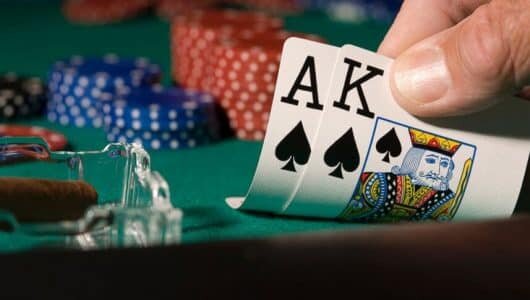Playing in your First Live Poker Tournament – Dave Tarbet
It’s a big step to make the jump from the comfort and anonymity of playing on your computer at home to a real life casino and poker tournament but hopefully by reading this article you’ll feel more comfortable about making that step.
On the internet it’s easy, log into your favourite poker site, go to the tournament lobby click on register and wait for your table to magically open and the tournament to begin. In the real world it’s a little different, so let’s look at how to go about playing your first live tournament.
The first job is to locate the nearest casino or card room to you which hosts poker tournament. This can be done easily on the internet as most poker portals list directories of places to play.
Then you should find out their tournament schedule and choose a tournament you want to play. Their schedule might be listed online or you might have to ring and find out. You should also find out if they have a membership policy or dress code.
In most casinos in the US you can just turn up and play, but some casinos in the UK and Europe require you to be a member and enforce a dress code.The first thing that will hit you when you walk into the casino is the noise. The constant whirring and buzzing of the slot machines (hopefully not near the poker room) and the clatter of chips being shuffled across the tables.
You will need to be strong willed to walk past the inviting slot machines and the craps, blackjack and roulette tables. Remember, you came here to play poker against other players like yourself, not gamble against the house, as you will surely lose.
The casino can often seem like a maze and it is sometimes difficult to find the poker room which is usually tucked away somewhere in the corner. Most casinos should have signs for the poker room, but if not, don’t be afraid to ask the staff, they are there to help you.
Once in the poker room, you need to find the person running the tournament and register. Often the poker room will have a registration desk, but if not, look for the person in a suit with a clipboard as they’ll probably be the tournament director, and if not, can surely point you in the right direction.
After registering it is useful to get a copy of the blind structure that will be used for the tournament. Most card rooms print numerous copies of these and leave them out for the players to take. The benefit of knowing the structure in advance is so you can plan your strategy accordingly. For example if it is a very quick structure (which it often is if the buy-in is low) you may want to play aggressively early on, but if the structure is slower with more time between blind increases you can play more slowly and patiently.
Another good tip is to read the card room rules as these can vary greatly depending on where you play. These are usually posted somewhere on the wall in the card room.
The last thing to do before you start to play is find out how many prize paying positions there are as it is no good if you are playing to make the final table when only the top three places will get paid.
When the tournament starts you will have to find your seat yourself. Tables will usually be numbered and seat 1 is to the left of the dealer.
If this is your first time playing live, then handling actual cards and chips will be a new experience for you. Always protect your cards so others can not see them and don’t lift them up from the table, instead cup your hands over them and lift up the edges.
Stack your chips neatly so that you always know roughly how much you have. The standard height of a stack is 20 chips so if you have a full stack of $5 chips you know you have $100. And don’t worry if there are players at the table doing fancy chip tricks. It doesn’t mean that they are better players than you, just that they are more experienced playing in real casinos. In fact you can use this information to your advantage as you know that they do have experience and can play against them accordingly.
Lastly, if you are unsure about anything, just ask the dealer or the tournament director. I’m sure you’ll find them to be very helpful and friendly. Good luck and I hope to see you at a final table soon.



